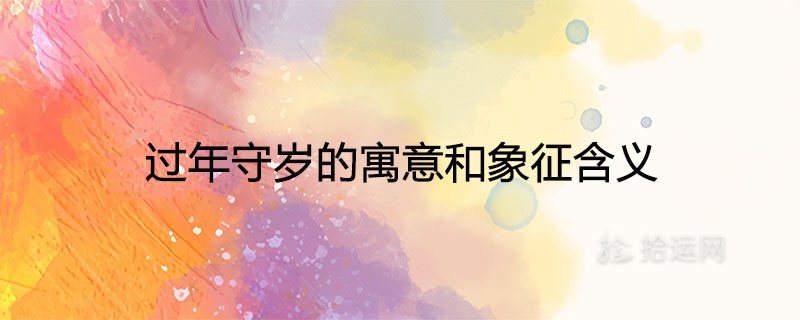The meaning and symbolic meaning of the New Year’s Eve
The meaning of the new year and the new year is to cherish the time , praying for longevity, this is a very important traditional folk custom.Even today, people still choose to keep the year old on New Year’s Eve every year.The family sits together and stays up late chatting, waiting for the first day of the new year to come.

Introduction to the Chinese New Year
New Year’s Eve refers to the "New Year’s Festival", which is now known as the "Spring Festival".The main content of the Chinese New Year is to remove the old and clothe the new, worship gods and ancestors, exorcise evil spirits, and pray for the New Year.According to the old custom, from the end of the year on the 23rd/24th of the December 23rd/24th of the Stove Sacrificial Day (Dust Sweeping Day), until the Lantern Festival on the 15th day of the first month or the 19th day of the first month, the period of nearly a month is called "New Year", that is, What is now called "the Spring Festival period"; if it is calculated from the preparation of "New Year’s goods", it will be busy around the end of the year on December 15th and 6th.
Meaning of Keeping the New Year’s Eve
The custom of keeping the New Year’s Eve is also known as "Bao Nian".Shou Sui is the custom of staying up late to welcome the arrival of the new year without sleeping on the last day of the old year.In ancient times, keeping the year has two meanings:the elders keep the year as "farewell to the old year", which means to cherish the time; the young keep the year to prolong the life of their parents.Since the Han Dynasty, the time for the alternation of the new and the old year is generally at midnight.On the night of New Year’s Eve, men and women, young and old, will be brightly lit and gather to keep the New Year’s Eve together.Therefore, keeping the year old is one of the customs of the Spring Festival.

微信扫码关注
更新实时通知
